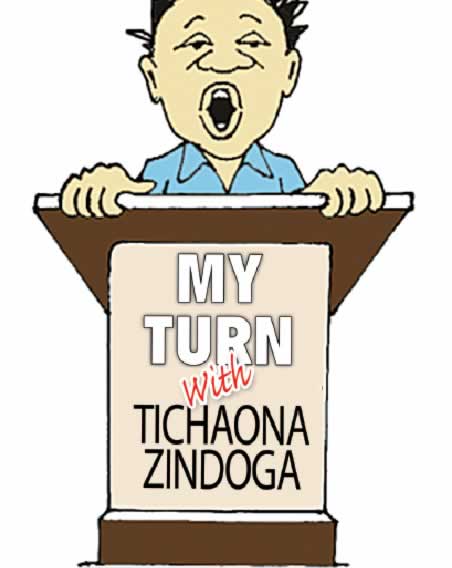A Zambian Guy called Scott

It wouldn’t hurt to take a short break from the current political drama in Zimbabwe to look across the river to see what they are doing in the North, would it? Actually it is all in order, what with the similarities, which are not very small. See, in Zambia, for close to three weeks the country has been gripped with a lot of political drama following the passing on of the country’s president Michael Sata.
In fact, Cde Sata’s long illness had become a matter of speculation, largely unhealthy.
At some point he was rumoured to have lost his life in New York, while attending the United Nations General Assembly.
That was a couple of moons ago.
Then his demise came, eventually; sadly. (It is only human to feel sad about such an event but a part of me derived a lot of happy comfort that the man, having aspired for the highest office in his land had finally managed to land it, via elections.)
Michael Chilufya Sata was a controversial man.
He is one of the few people whose moniker is a reptile that caused the Great Fall of man.
Sata was called King Cobra.
This may not have been about inherent evil: Sata was honest enough a fellow, from what we know, a person who rose from being a sweeper at a train station in Britain to become a whole President.
And we did not hear much of dishonesty or corruption — dishonesty and corruption in such offices as Sata had often stink to high heavens.
Rather Sata was an honest man.
Honest in word and deed.
And in word, largely, hence the name King Cobra because such honest and true words were sometimes mercilessly spat out like deadly venom.
In 2011, Sata surprised the world by selecting a white chap of British extraction — Scottish father and English mother — to be his Number Two.
This was curious and elicited all kinds of response.
The chosen one was our Guy Scott, a man whose only common thing with Sata may have been his verbal venom, as can be illustrated shortly.
Sata, in his wisdom, did not make Scott a powerful man — after all his race was a complication, with some clause in the country’s constitution stating that a man or woman of Scott’s pedigree would not, should not, access the throne of Zambia.
Scott understood; seemed not to bother much, even if his position raised uncomfortable epithets.
He was called a ceremonial vice president or worse, kind of, in the company of other leaders.
He explained in an interview with The Guardian: “I think they regard me as a sort of mascot, a good luck charm for African politics. Michael’s very clever, he knows people tend to regard him as a racist because he talks rough.”
That about explains the two points above.
And as ceremonial vice president who sometimes chanced on being acting president (ceremonious, too), how did Scott behave?
Like a Cobra.
Let’s say a verbal Cobra – much like his boss.
The aforementioned Guardian interview offers a couple of cobra-ic gems: he talked about Zimbabwe and South Africa, the biggest questions any top Zambian politician would be interested in. He admired, unexpectedly in his sort of rough way, President Mugabe of Zimbabwe.
He called him a “funny chap . . . And very articulate, without a note, without a scrap of anything.”
Going on to admire how the veteran leader’s self-made mastery of the English language and systems.
Then: “I’m sure any good African nationalist admires Mugabe. Racism in Zimbabwe is a serious issue. I was sent to school down there and it was like being in the Hitler Youth: the theories about black inferiority and this kind of stuff. It was a whites-only school; they tried to introduce an Indian and he was hounded out at the instigation of the parents of the boys. I think Mugabe is a product of having to contend with that.”
But Scott does not have fine words for South Africa.
He said in the interview that he hated South Africans!
He said: “The South Africans are very backward in terms of historical development. I hate South Africans. That’s not a fair thing to say because I like a lot of South Africans but they really think they’re the bees’ knees and actually they’ve been the cause of so much trouble in this part of the world.
“I have a suspicion the blacks model themselves on the whites now that they’re in power. ‘Don’t you know who we are, man?’”
He said he disliked, “South Africa for the same reason that Latin Americans dislike the United States, I think. It’s just too big and too unsubtle.”
And trying to knock South Africa from its new-found BRICS horse, he said South Africa was mistaken to think that the “s” stood for South Africa “whereas it stands for Africa”.
Mascot no more?
That was about all that we heard from Guy Scott — in 2011. Nothing really substantial, controversial even, in the interim.
One can assume that he played and accepted with equanimity his ceremonial role of ceremonial president and occasional African mascot.
Then Michael Sata died.
That was October 28, 2014.
Guy Scott was made acting president of the republic of Zambia in accordance with the laws, which provide for an election within 90 days.
It may have been then that he decided that it was not enough to be a ceremonial vice president or ceremonial acting president or worse a mascot in situations that would be better being a player.
He flexed his muscles.
Not many days after the passing on of Sata, Scott fired Edgar Lungu, the secretary-general of the Patriotic Front party.
He did not give reasons.
Lungu is being considered a top runner to succeed Sata, having been appointed acting president at occasions by poorly Sata.
The manoeuvring was obvious on Scott’s part — and, poor him, he also fell foul of African sentimentalities and formalities by choosing the mourning period of the veteran leader to do his politics.
It backfired spectacularly.
There were angry protests in Lusaka and Scott had to eat humble pie and reinstated Lungu.
That was 14 days ago.
But the battle is still on: Scott is now fighting his party’s central committee’s move to possibly, and most probably, elect a candidate in Lungu without going for a convention.
And yesterday, Peter Adamu of Zambia Reports publication said that some Patriotic Front senior members were plotting to move a motion to expel acting President Guy Scott.
It’s bound to be interesting in Zambia, if this comes to pass — the acting president being booted out from the party.
Now that’s political drama.
With instructiveness, too, in our circumstances. Succession.
The ceremonial ones seeking to be executive.
There is also an interesting story of a goblin that becomes too powerful and dangerous for its owner’s liking.











Comments